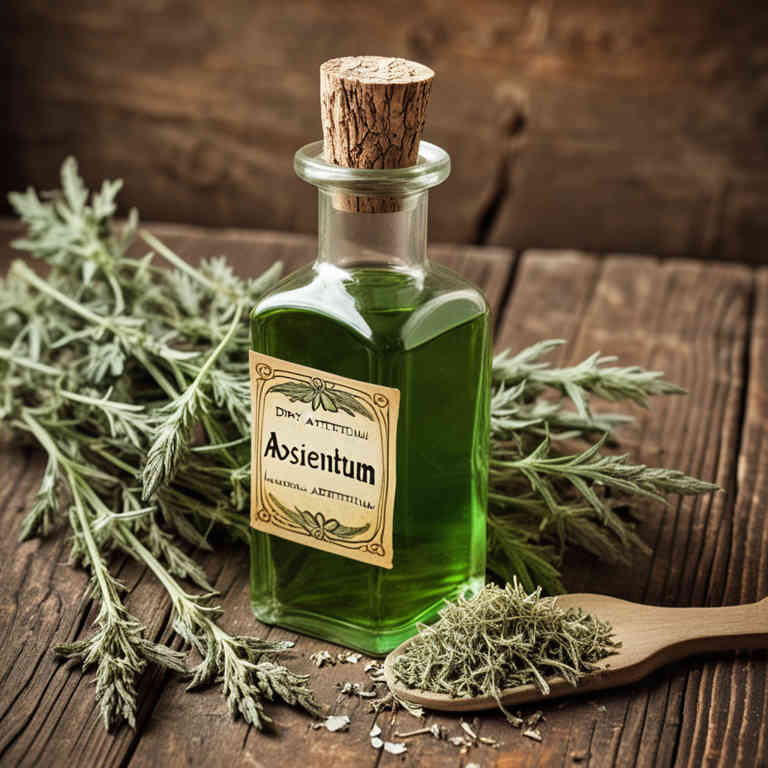Artemisia absinthium tincture for medicinal use

Artemisia absinthium tincture is a concentrated liquid extract made from the dried leaves and flowers of the wormwood plant.
It is traditionally used in herbalism for its purported digestive and detoxifying properties. The tincture is often employed to support liver function and aid in the treatment of digestive disorders. It may also be used in small doses to help alleviate symptoms of malaria.
However, due to its potency and potential for toxicity, it should be used with caution and under the guidance of a qualified herbalist.
Uses
Artemisia absinthium tincture has been used to treat digestive issues, fever, and parasitic infections for centuries.
Historically, it was valued in ancient Egypt and Greece for its medicinal properties and was later used in medieval Europe as a remedy for malaria and to expel worms. Traditionally, it was also used to aid in weight loss and as a stimulant. In modern times, it is still used in herbal medicine to support liver function and as a natural remedy for digestive discomfort.
However, due to its high thujone content, it is often used in diluted forms or for specific therapeutic purposes under professional guidance.
Benefits
Artemisia absinthium tincture has health benefits such as aiding in digestive health, reducing fever, and supporting the immune system.
It is traditionally used to help with ailments like digestive issues, inflammation, and even as a natural remedy for malaria. The tincture contains compounds like thujone and flavonoids, which may contribute to its medicinal properties. It is often used in herbal medicine to promote liver function and detoxification.
However, it should be used with caution due to its potency and potential side effects.
Constituents
Artemisia absinthium tincture active constituents include compounds such as thujone, artemisinin, and various flavonoids.
These components are believed to contribute to the tincture's potential health benefits, including antimicrobial and antiparasitic properties. Thujone is known for its stimulating effects on the nervous system, while artemisinin has been studied for its antimalarial activity. The flavonoids may support immune function and have antioxidant effects.
However, due to the presence of thujone, this tincture should be used with caution and under professional guidance.
Preparation
To make Artemisia absinthium tincture, first gather fresh or dried Artemisia absinthium leaves and flowers.
Place the herb in a clean glass jar and pour high-proof alcohol, such as vodka or grain alcohol, over it until the herbs are fully submerged. Seal the jar and let it sit in a dark, cool place for 4 to 6 weeks, shaking it gently every few days. After the steeping period, strain the liquid through a fine mesh strainer or cheesecloth to remove the plant material.
Store the tincture in a dark glass bottle away from light and heat to preserve its potency.
Side Effects
Artemisia absinthium tincture may lead to liver damage, gastrointestinal upset, and neurological effects due to its high concentration of thujone, a toxic compound.
Prolonged or excessive use can cause severe liver toxicity, which may be irreversible. It may also trigger anxiety, insomnia, and hallucinations in some individuals. The tincture is contraindicated during pregnancy and breastfeeding due to potential harm to the fetus or infant.
Additionally, it can interact with medications metabolized by the liver, increasing the risk of adverse effects.